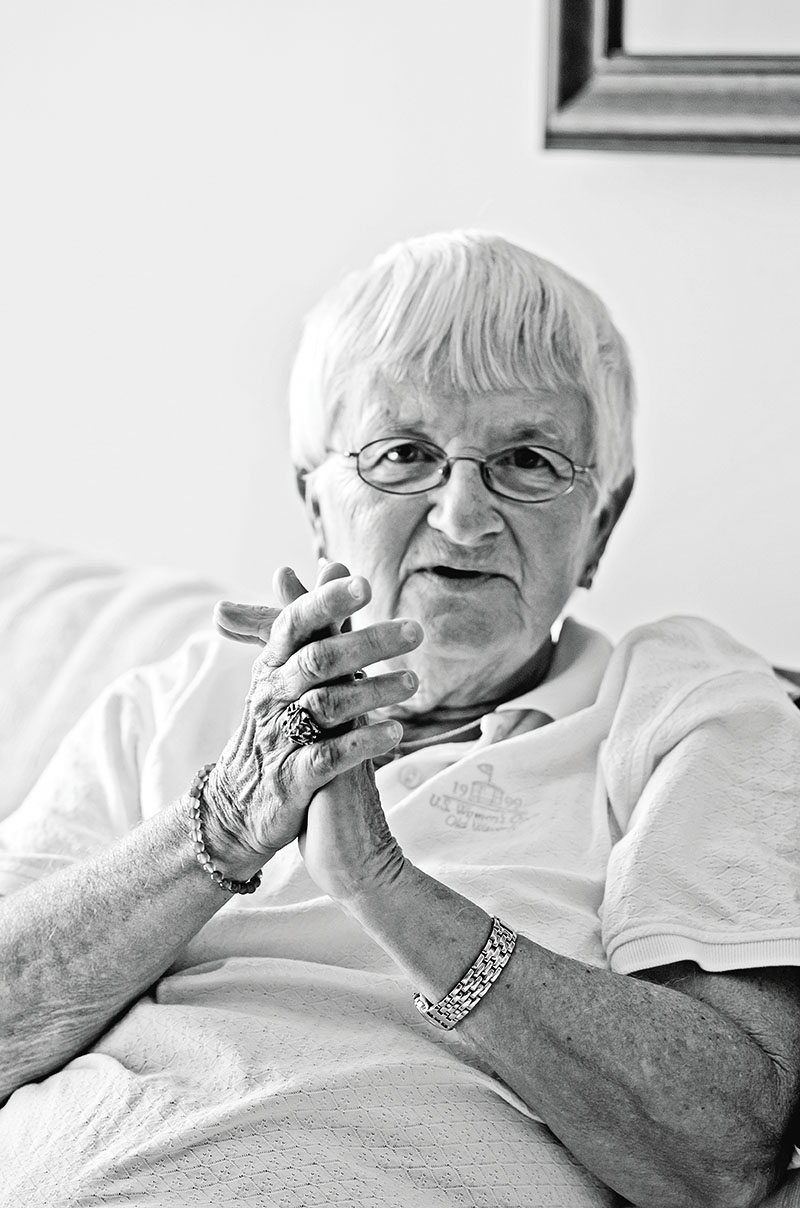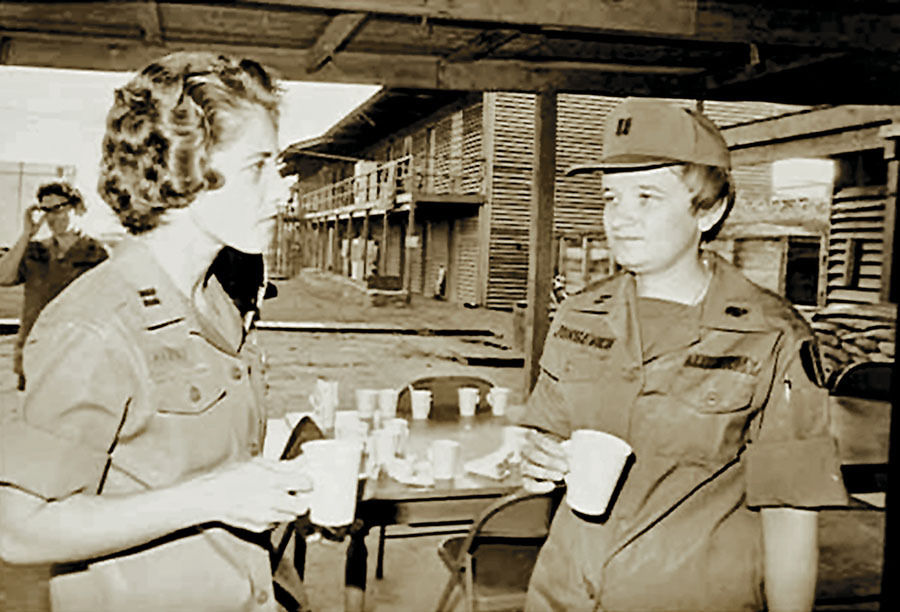
Being in charge of women had its challenges. They wanted to take their creature comforts to the bunkers. They had little fear.
I grew up in Stoystown in western Pennsylvania, a small town near the region’s steel mills, but I wanted to travel instead of work in a factory or be a housewife. I enlisted right after high school, in 1958, and received basic training at Fort McClellan, Alabama. As a cryptographer, I was assigned to the Signal Corps, completing several Stateside assignments and two tours in Europe. Seven years later, I went to Officer Candidate School in Alabama, and served two Stateside assignments. Then I volunteered and was selected to go to Vietnam as the commander of the Women’s Army Corps (WAC) Detachment in Long Binh, which was an honor.
Upon arrival in Vietnam in October 1968, I was put in charge of between 60 and 100 women who had administrative jobs in communications, logistics, intelligence and engineering. Long Binh, just 12 miles outside Saigon, was the Army’s largest logistical base in Vietnam. Most of the enlisted women were barely out of their teens.
I lived in the WAC Detachment compound trailer, with most of the comforts, while the enlisted women stayed in barracks with about 10 square feet of living space. The women were not allowed to leave the post and were required to be back at 10 every night. We had no weapons and one security guard. As a commanding officer, my number-one priority was their safety.
Keeping them focused on tasks was difficult at times, especially in getting them to straighten up their barracks. (I hated going through their areas; I wanted the women to have as much privacy as possible.) They had cash, and when stereo components arrived in the post exchange, they practically flew over there to buy them, so the wiring was everywhere! One time, during an alert, we heard a woman screaming, “I’ve been hit!” In gathering her helmet and canteen, her stereo had become dislodged and hit her on the head. I told her to get herself in the bunker and stay there.
 One woman brought an electric skillet for frying eggs, and others brought paper plates and plastic forks for a picnic. You had to keep saying, “Look, the helmet is more important.” Some would bring tape recorders to record noise from rockets. My biggest challenge was keeping everyone in the bunker until the all-clear was given. The women had little fear.
One woman brought an electric skillet for frying eggs, and others brought paper plates and plastic forks for a picnic. You had to keep saying, “Look, the helmet is more important.” Some would bring tape recorders to record noise from rockets. My biggest challenge was keeping everyone in the bunker until the all-clear was given. The women had little fear.
I tried to break the routines and arranged for two field trips. A helicopter company invited the corps women to fly down to their unit for a training day, so everyone volunteered, and helicopters arrived at Long Binh to pick them up. On another occasion, the women were invited to see the Vietnam Women’s Training Center in Saigon. They had security guards with them on the bus to Saigon; they actually took a big chance going down dangerous Route 1 from Long Binh.
On February 23, 1969, Long Binh Post came under attack at 2 a.m. in the morning. About 80 rockets or mortar rounds fell on the base, followed by a Viet Cong and North Vietnamese Army ground assault. The post was just one of more than 115 bases or towns subjected to this second Tet Offensive. We were on yellow alert, and a Headquarters Company reaction force was called into action on the perimeter. Though not trained as hardcore infantrymen, Headquarters and Headquarters Company gave it their all, and, aided by attack helicopters, repulsed the attack. But the next day, we found out that our commander, Lt. Col. William W. Dickey, had been killed on the perimeter. Overall, seven U.S. servicemen died, including Colonel Dickey, and 31 were wounded. The most difficult thing I had to do in Vietnam was tell the women that our boss had been killed.
In March, I received orders to an administrative job at the 1st Logistical Command HQ at Long Binh, where I remained until 1970. Enlisted women of all military branches were there in Saigon, so I lived in the WAC Detachment bachelors quarters, in a private room.
I left Vietnam excited to continue my career as an officer, with more schooling. After the WAC Advanced Course at Fort McClellan, I served in the Pentagon and retired as a lieutenant colonel in 1984. My years in Vietnam were the highlight of my 26 years in the Army. The women were so dedicated to their profession, to their duties and most of all to the United States at a time when many Americans were turning their backs on the country.
For more on women who served in Vietnam, visit www.vietnamwomenveterans.org.





